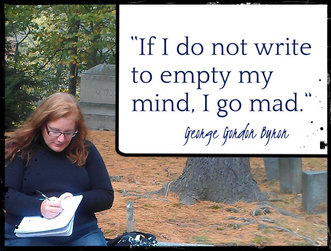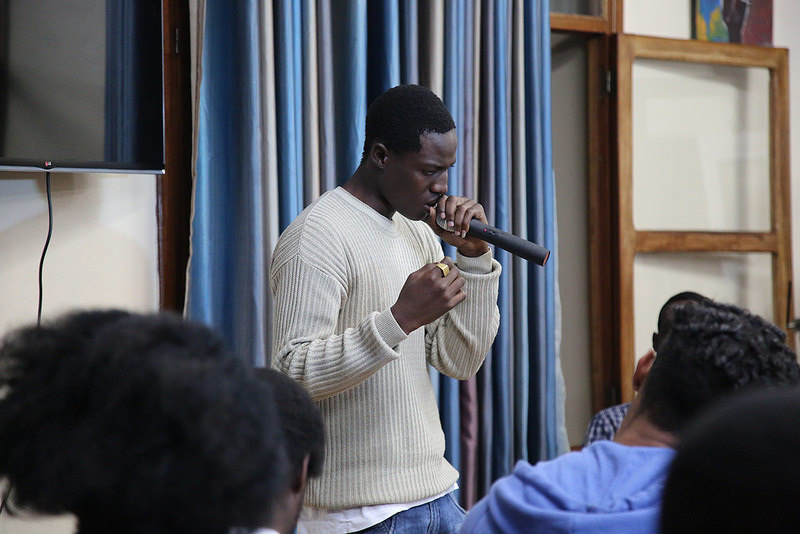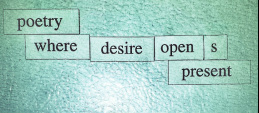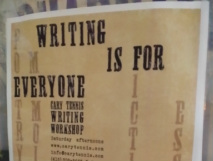Here's one way you can write a Slam PoemHelp with writing slam poetry series
Since Marc Kelly Smith (oh yeah!!) "invented" slam poetry (or the poetry slam, depending who you ask) in 1984, there has been growing interest in the culture from a full spectrum of demographics. All ethnicities, languages and ages have groups of individuals that represent the slam poetry movement and contribute to the spoken word ecosystem and evolution. Because this tidal wave of slam poetry continues to grow, more and more people are posing the question "How do I write a slam poem?" (PS - once you've sifted through this, I also added a 9-step guide on writing a slam poem that you should check out!) There's no perfect answer to the question. Because spoken word is free-form and only judged by the audience on hand, which can vary every time you perform, there are no real rules on how you compose and organize your slam poem. There are, however, some unwritten rules of how slam poetry should be penned and delivered. If you want to become a renowned slam poet, if you want to perform spoken word so that it is remembered and highly regarded, it has to hit hard at the gut of your audience. When you throw a proverbial left jab to the breadbasket, it won't soon be forgotten. Slam poetry should make your audience see and feel what you have seen and felt. If you were literally shot, how can you convey that pain and that fear or that very instant you realized you were about to possibly die? If your heart was broken, how do make another individual share the tears you shed and the physical anguish you experienced? Language is a powerful tool and slam poets need to master a vocabulary that allows them to verbally reenact emotional moments in time. A good key indicator that I've successfully accomplished this (not saying I'm perfect by any means) is that I still get choked up when I read back pieces I wrote years ago, and sometimes I have to fight the verklempt knot in my throat just to get through a performance. Though I can't tell you what words to use that will elicit emotion from a listener, I do have some helpful hints that will help you write slam poetry that lights up the stage in your slam competitions. A Guide on How to Write Magnificent Spoken Word & Slam Poetry1. If you want to write a great slam poem, do some homework on other spoken word artists first...
The best way to start you on your journey to becoming a spoken word artist is to attend a poetry slam in person.
If you Google poetry slams in your area you should be able to find some local events. There is a chance, however, that you don't get any local results. If that's the case, look into the local colleges in your area; the usually have poetry clubs or even put on their own public slams. YouTube is also a great poetry resource in today's world. There are thousands of videos available from literally hundreds, if not thousands, of slam poets around the world. Watch some videos to get a feel for the topics and styles you identify with. On my "What is Spoken Word? And What's a Poetry Slam?" page, you can find a list of 10 well-known slam poets - this could be a good start for you. 2. Select topics for your slam poems that are genuine to YOU...
You're performing slam poetry for an audience, and you're judged by that audience. If your work isn't real or sincere, they're going to know.
So although we perform for others, we should write for ourselves to make the most of spoken word. Many a slam poem has evoked the dirty side of society. Racial tension, political corruption, loss of a loved one and sexual assault are strong examples of topics that resonate with nearly everyone and can easily grip emotion. Slam poetry topics like these are the low hanging fruit. But again, there are no official rules that dictate what a good slam poem is about. I've written slam poetry on the topic of riding a busy subway and I've written about cutting open a grapefruit. Though they don't sound like forceful and gripping subjects, its important to find ways to tie them into powerful emotion. Those emotions are what captivates the audience. That and the delivery, of course. Since many of you have never written a slam poem, I realize I haven't made finding the topic for your inaugural slam poetry piece any easier. I tend to go with real-life events when I write, so my topics are often non-fiction autobiographical stories versus writing about things I hear on the news, etc. Here are some sample topics for your slam poem (aside from everything I mentioned above):
I can go on and on about slam poetry topics. Hopefully that inspires you, because what its really about is taking a look at life with some altitude, observing every moment and realizing that each moment is poetic. If I were writing a poem right now, it might be about the crazy shirt I just saw someone wearing - which in turn would tie into a funny poem about fashion and style and my own lack thereof. 3. Write down all of the thoughts and feelings that surround your slam poem topic...
Once you've decided on a topic, or at least think you have one, the first step I take is I just start writing about the events, instances, emotions and feelings that surround my topic.
Usually memories start to take hold and the concept snowballs. Keep writing for a while, then take a break and come back to it later. You should have a good couple pages of ideas that just need some structure and flair. If you're doing this right, there's a good chance you'll head off topic. That's OK! You can fix it later. But what it also means is you may accidentally stumble upon the topic for your next slam poem. 4. Enhance the framework
Once you have these ideas down, go back through and structure what you've written.
First start taking sentences and fragments and putting them in a logical order. And if you have other thoughts on things you'd like to add that are topic-related, don't hold back - now's the time. At the end of this, you should have a poorly worded, terribly structured story that, when you read it through, seems to be the infancy stage of bringing your topic to life. 5. Give the steak some sizzle
Now that you have a slam poem topic, you've sketched out ideas on the story you want to tell and given them a logical progression, its time to get funky.
First let's talk about rhyming in spoken word poetry. Just to echo, there are no rules around this. But there are some general guidelines:
There are several other literary and poetic tools or devices that will help you along the way.
6. A little elbow grease to tighten it all up
You're almost there, and I'm proud of you!
You should have a pretty well-written piece now. When you read it in your head, it should give you chills. It should awaken feelings from the past, conjure up your own demons or make you laugh to tears. If something like this happens, you're on the right path. Now memorize it. To the point where you can perform it in your sleep. This takes practice and dedication, and some will pick it up faster than others, but anyone can do it. Have you ever memorized a song you liked? Then you can do this, too. My advice is to take it section (or verse) by section. Pick out key lines and indicators and use those to help you remember the next line you need. This is a learned skill, but I promise it gets easier and you'll pat yourself on the back for doing it. Now slam motherfucker - SLAM! Time to battle-test your skills. Grab a friend and perform your piece for them. You should use someone who will be brutally honest. Don't perform using your written piece - it should be off the head. Then take their feedback and integrate that into your poem - but ONLY IF YOU THINK IT MAKES THE PIECE BETTER! Remember, spoken word is all about you. Your story, your feelings. Do you feel good about your piece? Do you have a story and a message that's ready to be shared? Do you think an audience would appreciate hearing you? Great - now slam motherfucker, SLAM! And then, let me know how it went! =) Based on what you just read, here's some more content that you might enjoy:
6 Comments
|
|



